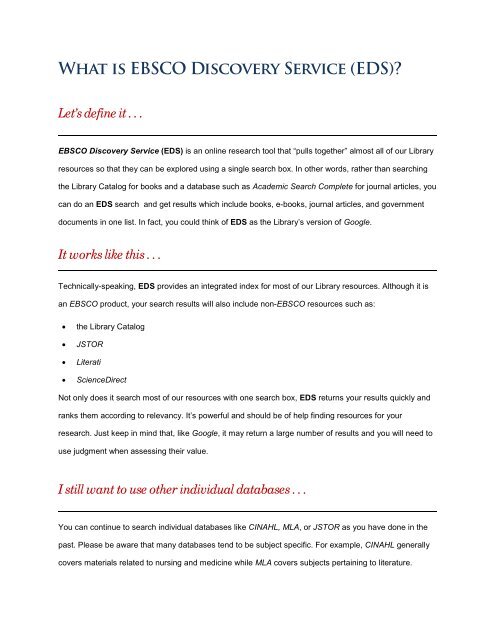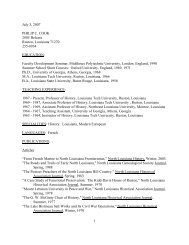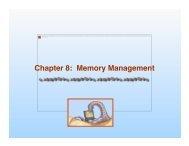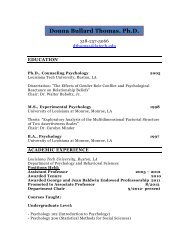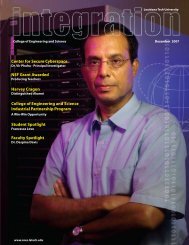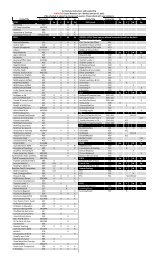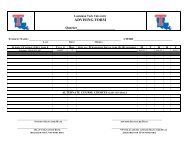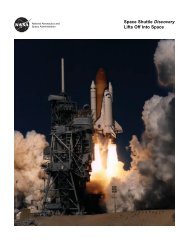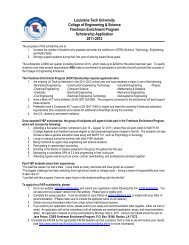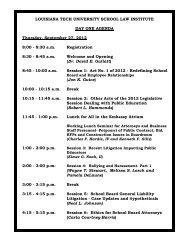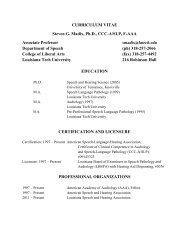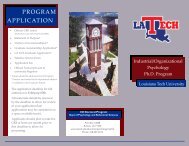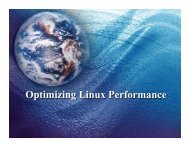What is EBSCO Discovery Service (EDS)?
What is EBSCO Discovery Service (EDS)?
What is EBSCO Discovery Service (EDS)?
You also want an ePaper? Increase the reach of your titles
YUMPU automatically turns print PDFs into web optimized ePapers that Google loves.
<strong>What</strong> <strong>is</strong> <strong>EBSCO</strong> D<strong>is</strong>covery <strong>Service</strong> (<strong>EDS</strong>)<br />
Let’s define it . . .<br />
<strong>EBSCO</strong> D<strong>is</strong>covery <strong>Service</strong> (<strong>EDS</strong>) <strong>is</strong> an online research tool that “pulls together” almost all of our Library<br />
resources so that they can be explored using a single search box. In other words, rather than searching<br />
the Library Catalog for books and a database such as Academic Search Complete for journal articles, you<br />
can do an <strong>EDS</strong> search and get results which include books, e-books, journal articles, and government<br />
documents in one l<strong>is</strong>t. In fact, you could think of <strong>EDS</strong> as the Library’s version of Google.<br />
It works like th<strong>is</strong> . . .<br />
Technically-speaking, <strong>EDS</strong> provides an integrated index for most of our Library resources. Although it <strong>is</strong><br />
an <strong>EBSCO</strong> product, your search results will also include non-<strong>EBSCO</strong> resources such as:<br />
• the Library Catalog<br />
• JSTOR<br />
• Literati<br />
• ScienceDirect<br />
Not only does it search most of our resources with one search box, <strong>EDS</strong> returns your results quickly and<br />
ranks them according to relevancy. It’s powerful and should be of help finding resources for your<br />
research. Just keep in mind that, like Google, it may return a large number of results and you will need to<br />
use judgment when assessing their value.<br />
I still want to use other individual databases . . .<br />
You can continue to search individual databases like CINAHL, MLA, or JSTOR as you have done in the<br />
past. Please be aware that many databases tend to be subject specific. For example, CINAHL generally<br />
covers materials related to nursing and medicine while MLA covers subjects pertaining to literature.
<strong>EDS</strong> provides a type of “super database” approach by searching almost ALL of these subject databases.<br />
So, if you are not sure of what specific databases you need or you just want to “cast a wide net,” try <strong>EDS</strong>.<br />
Individual databases can still be accessed using the A-Z L<strong>is</strong>t link on the Library homepage and you can<br />
be assured that we are not planning to cancel any of our current subject-specific databases. These are<br />
the resources that <strong>EDS</strong> uses in the search process, so we will be keeping these subscriptions as long as<br />
our budget allows us to do so. You can think of <strong>EDS</strong> as an additional resource tool in our collection, not<br />
as a replacement for anything.<br />
I’m having trouble using <strong>EDS</strong> . . .<br />
Well, it’s a new tool for you and for us! So, it may not be obvious how to do some of the things you have<br />
grown accustomed doing with the other databases. Therefore, you are encouraged to explore th<strong>is</strong><br />
resource along with us and give us feedback on your success and frustration with it.<br />
Please note, too, that <strong>EDS</strong> <strong>is</strong> still a work in progress. Expect to see product enhancements over the<br />
coming months. If you identify a functionality that <strong>is</strong> currently m<strong>is</strong>sing or could be improved, contact us<br />
and we'll send your concerns to the folks at <strong>EBSCO</strong>.


